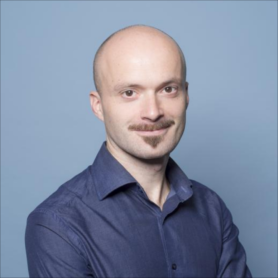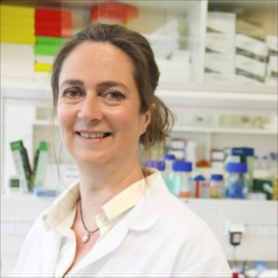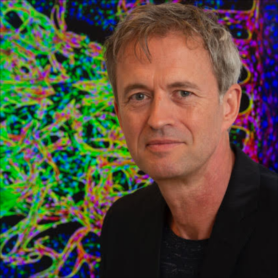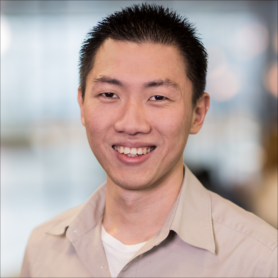Speakers 2019
 About
About
Massimo Mastrangeli is Assistant Professor at the ECTM laboratory of the Microelectronics department of TU Delft, where he is developing silicon/polymer-based organ-on-chip and nanoparticle-based devices.
He acts as guest editor, editorial board member and reviewer for several technical and scientific journals, and is steering committee member and technical program committee member for several international conferences. Prior to joining TU Delft, Dr. Mastrangeli held research appointments at the Max Planck Institute for Intelligent Systems (Stuttgart, Germany) for soft microrobotics and granular matter, at the Université Libre de Bruxelles (ULB, Belgium) for micromechanics and capillary micromanipulation, at Ecole Polytechnique Fédérale de Lausanne (EPFL, Switzerland) for micro/nanofabrication and distributed robotics, and at imec Belgium (Leuven, Belgium) for fluidic microsystems integration and microelectronic packaging. Dr. Mastrangeli holds a BSc and MSc degree (both cum laude) in Electronic Engineering from the University of Pisa (Italy) and a PhD degree in Materials Engineering from University of Leuven (Belgium).
Presentation Abstract
To develop more effective products in shorter time, with lower costs and minimal side effects, pharmaceutical, cosmetic, chemical and other industries are looking for alternatives to standard cell cultures and animal tests, since those established systems do not entirely capture the physiological response of human organs let alone organisms. Born from the convergence of microfluidics and cell tissue engineering, organ-on-chip is a technology that may afford superior recapitulation of human (patho)physiology in vitro thanks to the precise control and monitoring of the three-dimensional cell culture microenvironment and the provision of dynamic electro-mechanical stimuli.
In this talk I will present the origin and context of the organ-on-chip technology, and illustrate the inherently multidisciplinary character of the field by focusing on some recent results of our own collaborative research.

About
Prof. dr. Marileen Dogterom is a University Professor at the TU Delft and Medical Delta Professor at Leiden University. She is an internationally renowned expert in experimental cell biophysics with a pioneering track record in biophysical research of the microtubule cytoskeleton. Over the years, her group has systematically worked on increasing functional biological complexity in reconstitution experiments, which paved the way for her current and future ambition to build synthetic cells. She published ~100 papers in high-ranking physics and biology journals. Dogterom actively and frequently collaborates with leading national and international researchers in both physics and biology. In 2014 she moved to TU Delft to head the Bionanoscience Department (part of the Kavli Institute for Nanoscience). She was elected EMBO member in 2013, Academia Europaea member in 2015, and received the Dutch Physica Prize in 2015. In 2016 she was elected member, and in 2017 Board Member, of the Royal Netherlands Academy of Arts and Sciences (KNAW). Since 2017, she leads the Dutch Consortium BaSyC (Building a Synthetic Cell) and is one of the initiators of the European Synthetic Cell Initiative. In 2018 she received the Spinoza award, and was named 2019 Fellow of the Biophysical Society.
Presentation Abstract
Coming soon!

About
Jos Joore is a biotech entrepreneur with over 20 years of executive level bio-business experience and 8 years in biosciences. As CEO and co-founder of MIMETAS (www.mimetas.com, Leiden), Jos closed deals with most top-10 pharma companies, secured series A and B investment rounds and enabled mass production & global marketing of OrganoPlates. Jos also co-founded and led Pepscope (www.pepscope.com, Utrecht) and Spreekmeesters (www.spreekmeesters.nl, Utrecht), active in the field of protein kinase profiling and presentation training for scientists, respectively. Previously, he has held managerial positions within biotech companies Pepscan, Skyline Diagnostics, Kreatech and Westburg. Jos holds a masters degree in Biology, a Ph.D. in Developmental Biology and a cum laude masters degree in Business Marketing.
Presentation Abstract
What if we could test new therapies on organs-on-chips, before we give them to patients? MIMETAS develops organ-on- a-chip products, tissue and disease models for therapeutic testing, screening, and fundamental research. Its flagship product, the OrganoPlate®, supports 3D cell culture under continuous perfusion, with membrane-free co-culture and epithelial and endothelial tubules. The company develops and validates customized disease, toxicology, and transport models and ultimately will make its technology available for personalized therapy selection. MIMETAS has developed models for the kidney, liver, gut, brain, and a range of oncological applications, that offer better predictivity towards human physiology as compared to laboratory animals and conventional cell culture models.
Website: www.mimetas.com

About
Nicholas Kurniawan received his PhD in 2012 from the National University of Singapore (Singapore), studying the role of matrix viscoelasticity in cancer metastasis. He then carried out postdoctoral research as a Marie Curie Fellow at AMOLF (Amsterdam, the Netherlands), investigating the hierarchical structure-property relation in the cytoskeleton and extracellular matrices. In 2015, he joined Eindhoven University of Technology (TU/e) in Eindhoven, the Netherlands, as an Assistant Professor in the research group Soft Tissue Engineering and Mechanobiology (department of Biomedical Engineering). He is also a member of the Institute for Complex Molecular Systems (ICMS).
Presentation Abstract
Stimulating cells: a physical and mechanical perspectiveThe extracellular environment defines a physical boundary condition with which cells need to negotiate. It has been known for many years that physical and mechanical cues, such as confinement substrate topography, and stretch, can dramatically alter cell phenotype. However, the scale of such effects as well as the underlying mechanisms are still poorly understood. To explore cellular response to this range of cues, our group has developed bottom-up experimental platforms that allows systematic monitoring of cell phenotype on a library of 2D micropatterned substrates and 3D structures in biomimetic setups. I will discuss how a rich variety of cell responses can emerge from an interplay between actin dynamics, force generation, nuclear mechanics, and adhesion morphology.

